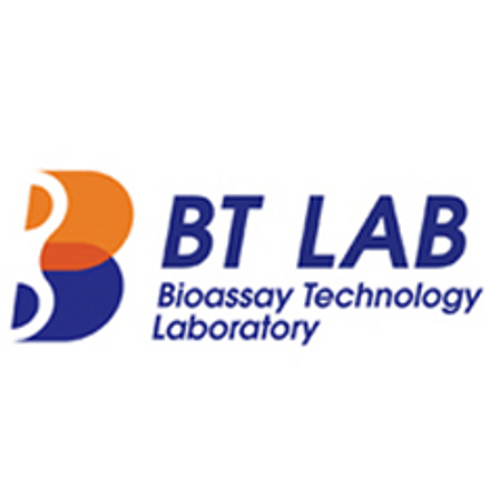Product Description
Pig Beta-2 adrenergic receptor (ADRB2) ELISA Kit | AE24111PI | Abebio
Species Reactivity: Pig (Sus scrofa; Porcine)
Abbreviation: ADRB2
Alternative Name: ADRB2R; ADRBR; B2AR; BAR; BETA2AR; beta-2 adrenergic receptor|beta-2 adrenoceptor|catecholamine receptor
Application: ELISA
Range: 39.07-2500 pg/mL
Sensitivity: 9.77 pg/mL
Intra-Assay: ≤5.2%
Inter-Assay: ≤8.9%
Recovery: 0, 87
Sample Type: Serum, Plasma, Other biological fluids
Detection Method: Sandwich
Analysis Method : Quantitive
Test Principale: This assay employs a two-site sandwich ELISA to quantitate ADRB2 in samples. An antibody specific for ADRB2 has been pre-coated onto a microplate. Standards and samples are pipetted into the wells and anyADRB2 present is bound by the immobilized antibody. After removing any unbound substances, a biotin-conjugated antibody specific for ADRB2 is added to the wells. After washing, Streptavidin conjugated Horseradish Peroxidase (HRP) is added to the wells. Following a wash to remove any unbound avidin-enzyme reagent, a substrate solution is added to the wells and color develops in proportion to the amount of ADRB2 bound in the initial step. The color development is stopped and the intensity of the color is measured.
Product Overview: ADRb2 is directly associated with one of its ultimate effectors, the class C L-type calcium channel CaV1.2. This gene encodes beta-2-adrenergic receptor which is a member of the G protein-coupled receptor superfamily. This receptor is directly associated with one of its ultimate effectors, the class C L-type calcium channel Ca (V) 1.2. This receptor-channel complex also contains a G protein, an adenylyl cyclase, cAMP-dependent kinase, and the counterbalancing phosphatase, PP2A. The assembly of the signaling complex provides a mechanism that ensures specific and rapid signaling by this G protein-coupled receptor. This gene is intronless. Different polymorphic forms, point mutations, and/or downregulation of this gene are associated with nocturnal asthma, obesity and type 2 diabetes.
Stability: The stability of ELISA kit is determined by the loss rate of activity. The loss rate of this kit is less than 5% within the expiration date under appropriate storage condition. The loss rate was determined by accelerated thermal degradation test. Keep the kit at 37°C for 4 and 7 days, and compare O.D.values of the kit kept at 37°C with that of at recommended temperature. (referring from China Biological Products Standard, which was calculated by the Arrhenius equation. For ELISA kit, 4 days storage at 37°C can be considered as 6 months at 2 - 8°C, which means 7 days at 37°C equaling 12 months at 2 - 8°C) .
 Euro
Euro
 USD
USD
 British Pound
British Pound
 NULL
NULL








